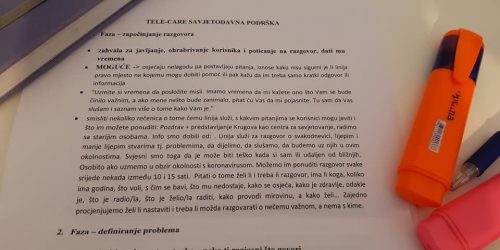How to prepare for my EVS
Each volunteer carries with her/him ideas, expectations, needs and habits that deserve to find a respectful and trustful hosting environment, receptive of individual specificities.
The most important person in the European Voluntary Service is you, the volunteer. But other parts participate in the project: you will need a sending, hosting and coordinating organization. Sending, Receiving and Coordinating Organisations often devote a great deal of time, energy and resources to set up an EVS project.
The host organization is an association, municipality, school, youth centre etc where you will do your volunteer service.
The coordination organization is the one in charge of requesting the grant and taking on the financial and administrative responsibility of the whole project for the National or Executive Agency. It can be the sending or hosting organization itself or in some cases an external organization. In those cases where only one volunteer takes part, it will be either the sending or the hosting organization.
The sending organization is the one that the volunteer will be in touch with before leaving abroad. This organization will prepare you before you go to volunteer abroad and later, help you to adapt again to your ordinary life- after the EVS is over.
Here are some tips for your arrival:
- The volunteer has to be informed about the Erasmus+ Programme — its philosophy, aims, priorities and procedures — and how EVS projects are carried out.
- Prior to her/his departure, the volunteer must receive clear information about the EVS project, in particular about the tasks to be performed, accommodation, training and support. If the host placement is located in a live-in community, the volunteer must be informed about the rules and conditions that apply in such a community and which relate to her/him.
- Prior to her/his departure, the volunteer is responsible for informing the organisations about any circumstances that may influence her/his capability to carry out certain tasks and about any individual special needs. If necessary, she/he should provide accurate information about health-related issues.
- The volunteer is to sign a volunteering agreement with the Sending and Receiving organisation.
- Participation in EVS is free of charge for the volunteer. Except for a possible contribution to travel costs and expenses the volunteer encounters not directly linked to the project, the volunteer must not be charged, either fully or partially, directly or indirectly, for taking part in an EVS project.
- The volunteer can request and must receive help from the organisations in obtaining a visa, if so required by the legislation of the host country.
- Volunteer should get CIGNA assurance and if is possible any other health assurance (like European Health Card) in case of ilness.
- During the entire volunteering period, including while on vacation, the volunteer is also entitled to a monthly or weekly allowance (pocket money). The amounts are as stated in the Programme Guide. The pocket money must not be aimed at covering costs related to the implementation of the project (for example local transport or food).
- Prior to departure, the volunteer must receive the EVS Info-Kit and be adequately prepared by the Sending/Coordinating Organisation for the stay abroad, according to her/his needs and in line with the EVS Training and Evaluation Cycle guidelines and minimum quality standards.
Find out more:






